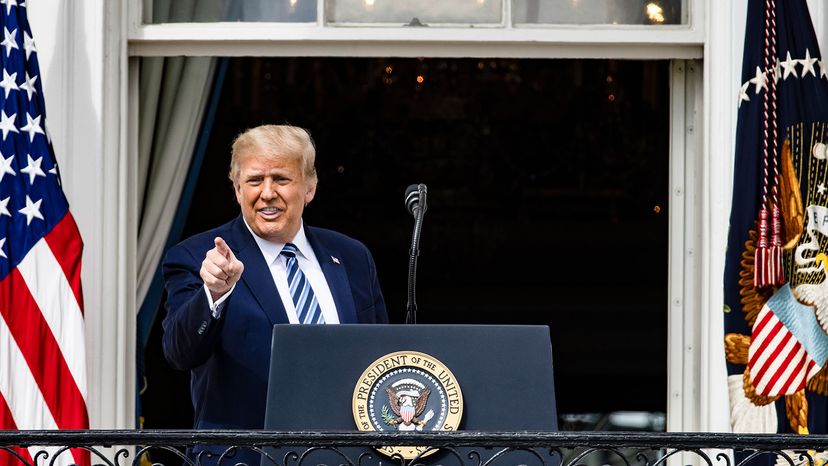The President and the Other Branches of Government

The president's authority to lead the nation is limited by checks and balances that were added by the framers of the Constitution. Without approval by Congress, the president can't get legislation passed. Without the support of the Supreme Court, the president's actions can be deemed illegal.
To maintain a healthy balance of power, only Congress can create a law. Consider legislation a long circle. When the president has a piece of legislation he or she wants passed, the president will lobby Congress. Congress deliberates the bill and both houses vote on it. If Congress passes the bill, it's sent to the president, who signs it into law. This is the best-case scenario for a president. At any point, the legislative process can fall apart. Either house of Congress can fail to pass the bill. It can be killed in committee.
Advertisement
Congress also limits presidential power by its ability to confirm or reject presidential confirmations. Presidents appoint their Cabinet members, Supreme Court justices, diplomats and others to help them carry out their agenda. To prevent an army of bureaucrats, judges and high officials from carrying out the president's every whim, the Senate vets candidates and can confirm them only with a two-thirds vote.
The president's salary is another check established by the Constitution that prevents excessive power within the congressional/presidential balance. The president's compensation can't be increased or decreased during the year, so Congress can't tempt or punish a president into complicity by offering a raise or whittling away his or her salary.
The president is meant to temper the other branches as well. Just as Congress isn't required to pass legislation, the president isn't required to sign a bill that Congress hopes will become law. The president is invested with the veto power. This is the ability to refuse to sign a bill into law. Once a president vetoes a bill, Congress can override the veto, but it's a difficult process. Both the House and the Senate must produce a two-thirds vote. This can be tough, especially with a bill that didn't enjoy overwhelming support in Congress before the veto. A president can also effectively kill a bill through a pocket veto, which occurs when a president doesn't formally veto a bill, but instead keeps it unsigned until the legislative session ends.
At times, a president simply threatening a veto is enough to send Congress back to the drawing board to come up with a compromise the president will agree to pass. Some presidents used their veto powers more than others. Franklin Roosevelt and Grover Cleveland rank highest with 635 and 414 vetoes, respectively. Eight presidents never vetoed a single bill; all of them served before 1882 [source: United States Senate].
The judicial and executive branches also interact to check and balance one another. The judiciary can rule a presidential decision or law illegal, thus overturning it. Historically, the Supreme Court has sided with the president, though not in all cases. In one landmark case during the administration of President Harry Truman, the Supreme Court ruled that the president doesn't have the power to seize private businesses.
The president balances the judiciary with the pardoning power. Through pardons, the president can essentially overrule a judgment against a person or group of people who have been convicted in U.S. courts. On Christmas Day in 1868, President Andrew Johnson pardoned all Civil War soldiers who had fought for the Confederacy and against the Union, arguing it was a reconciliatory gesture. President John Kennedy managed to overrule both the judicial system and Congress with a single pardon. Kennedy issued a blanket pardon for Americans who'd been convicted under the Narcotics Act, which he considered an unfair law. President Bill Clinton outraged many through his 396 pardons, which included a pardon of his younger brother, Roger Clinton, who was jailed on a drug charge, and financier Marc Rich, a Clinton supporter charged with tax evasion and illegal trading with Iran. And President Donald Trump raised eyebrows when he proclaimed he had the power to pardon himself — something which, if ever done, could threaten the system of checks and balances [source: Walsh].